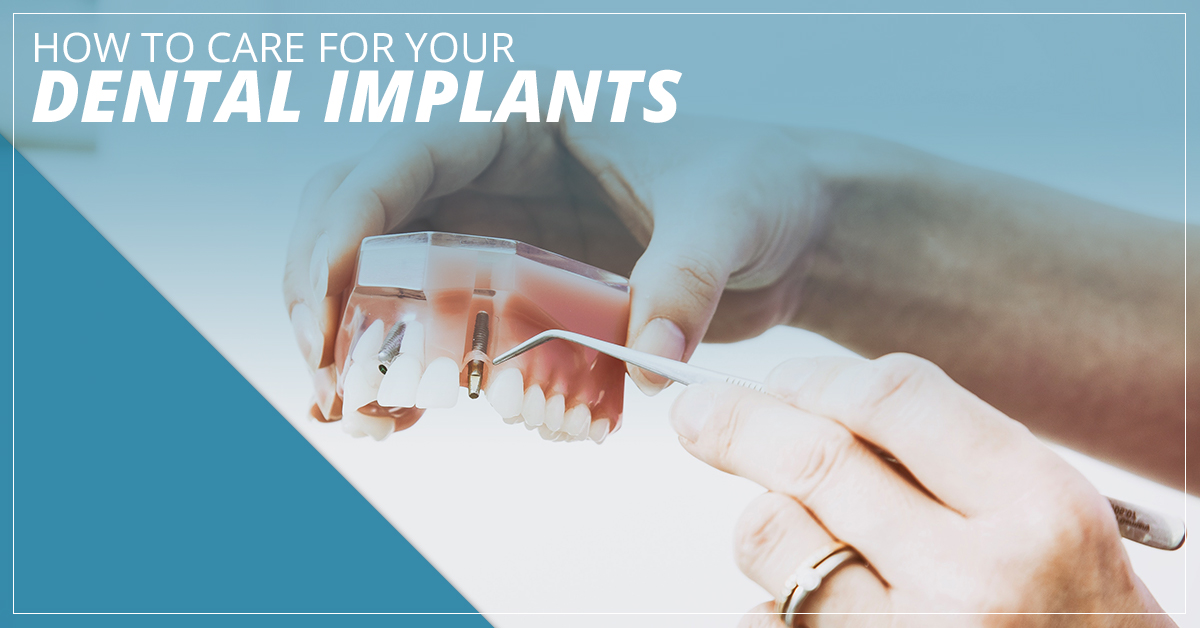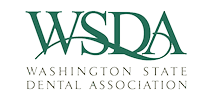
If you’re thinking of visiting a periodontist to learn about dental implants, one of your biggest concerns may be cleaning your dental implants. If you or a loved one has had dentures in the past, you’re probably worried that cleaning your implants will be the same. However, you’ll be pleased to find that cleaning dental implants isn’t like maintaining your implants. You won’t have to remove your implants each night and leave them in a cleaning solution. First, let’s take a look at dental implants and how they work.
A “dental implant” refers to the part that replaces the root of your teeth. Crowns are the part that makes up the visible part of the dental implant. Between these two pieces is an abutment or a connector. When the implant procedure is done, the bone in your jaw begins to connect to the implant through a process called osseointegration. Without this process, your implants would not be stable and they would come loose and maybe even fall out.
The abutment is the area of the implant that comes into contact with the gum and separates the crown from the implant. Collagen is what supports the gum and attaches itself to the abutment. The root of a natural tooth is attached to the bone with tiny fibers that come from the periodontal ligament. However, a dental implant is only attached to the surrounding bone. Since the periodontal ligament brings blood and nutrients to the root, natural teeth are able to fight off infections more easily.
Cleaning dental implants
Many people get dental implants thinking that just because they can’t get cavities means they can’t get infections and don’t need to brush or floss their teeth. This could not be farther from the truth— you are more prone to infection with dental implants. As long as you follow proper cleaning procedure for your dental implants, you won’t have any issues. It’s important to note that your implants are not teeth, and as such, they shouldn’t be cared for in the same way as teeth. Although regular brushing is important, there is more to it than that.
Brushing
It’s important to start maintaining proper oral hygiene as soon as possible after surgery. Although it’s normal to be sore or experience swelling, you should still be able to brush lightly and without too much pain. You should make sure to clean both the gums and the crowns of your new implants. Even though you can’t get cavities, bacteria can still build up on the crown and lead to gum infection.
Discoloration
It’s normal to see some discoloration in the gums after your surgery. The discoloration is caused by bruising within the tissue and should clear up after a few days. As far as discoloration on the crown of the implant goes, that could be due to not brushing enough.
Flossing
Flossing with implants is a little more involved than with natural teeth. To floss your implant, use a dental tape or another type of implant-specific floss and push the floss through to the other side of the implant. Wrap it in a circle and pull on either side, back and forth. Make sure to get inside the peri-implant crevice which is highly susceptible to inflammation and peri-implant disease. This is caused by a small layer of biofilm that forms on it.
Also, antimicrobial mouth rinses may be recommended by your periodontal specialist, especially if there is still inflammation present in the gums. If the patient is prone to inflammation, you may need to use an antimicrobial rinse, in addition to a rubber tip stimulator.
Schedule regular checkups
Although it’s extremely important for you to maintain your own personal oral hygiene schedule, you should also speak with your periodontist about regular checkups and cleaning. During the first few months after your surgery, you should have more frequent visits so that your periodontal specialist will be able to track your healing process, especially in regards to the osseointegration process. If your implants are not setting properly, your periodontist may need to explore other options to ensure you have stable implants. Once your periodontist has tracked the healing process, you can go back to regular 6-month checkups and professional cleaning with your normal dentist.
Contact Pacific Northwest Periodontics
Pacific Northwest Periodontics is your premier choice for periodontics in Seattle and the surrounding area. Dr. Rapoport and Dr. Schuler are specialists in dental implant surgery and treating the bone and gum tissues around your teeth. Backed by a team of experienced specialists, they are able to deliver state-of-the-art dental implant treatment and can provide extractions, dental implants and immediate, functional replacement teeth in the same visit for eligible candidates. If you have any questions or you’re ready to schedule an appointment, contact us today.








